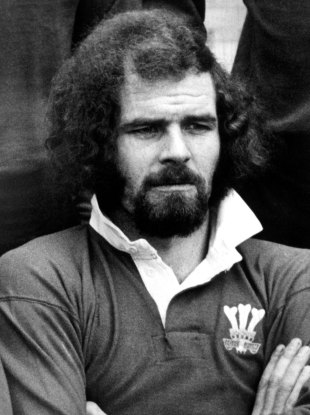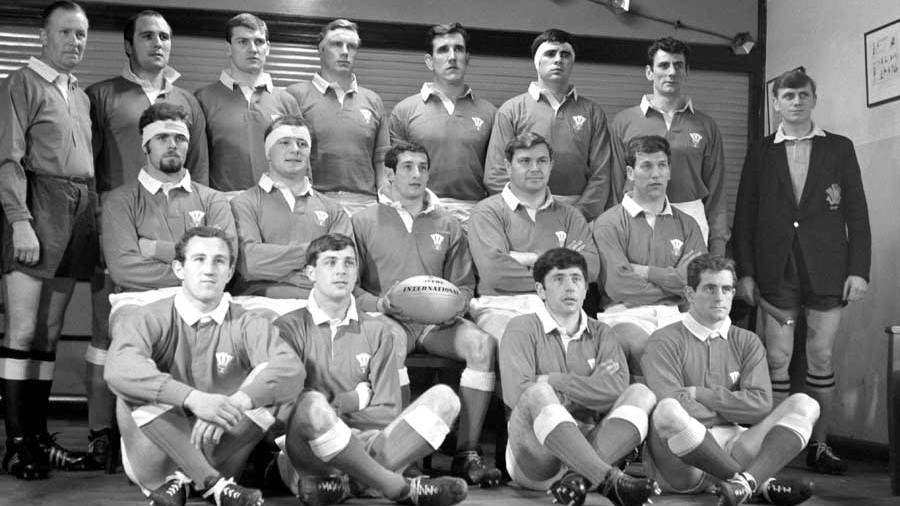|
Six Nations
An unrivalled passion
John Taylor
January 30, 2014

John Taylor experienced the highs and lows of the Five Nations
© PA Photos
Enlarge
Forget the World Cup, forget the world rankings, it is the end of January and the buzz that always surrounds the start of the Six Nations is back. It may not always provide rugby of the highest quality but it is still the greatest rugby tournament in the world. Why? Because it has so much history and it defines the evolution of the game in the four home nations and France. Italy have now joined the party and there are annual visits to and from the southern hemisphere so countries may well play a dozen Tests a year but for many decades this was what international rugby was all about for northern hemisphere players and fans. The legacy and rivalries produce a passion that no other competition comes close to matching. In many ways the fans are still the defining factor. In the days when 'corporate' still meant joint responsibility instead of a glorious 'jolly' subsidised by big businesses, they travelled in their tens of thousands to London, Dublin, Cardiff Edinburgh and Paris. People saved all year to make the trips - it was perfect when every game was played on a Saturday afternoon but even with Friday evening and Sunday kick-offs the tradition is as strong as ever. There may be a few seats empty when the All Blacks or the Springboks are in town but, with the exception of Italy, every home international is a sell-out. Everybody has a Six Nations friendship tale to tell and this is my favourite. I was covering Scotland versus England a few years ago and called a taxi to the airport on the Sunday morning. When the very Scottish driver discovered I was Welsh he asked if I knew Ystradgynlais, a tiny village in the Swansea valley. It transpired that he had picked up three Welshmen to go to Waverley Station to get the train home after a Scotland Wales game about 10 years before. They were in high spirits - Wales had won and they had also had a big win on the horses - but were not relishing the eight hour train journey. 'How much to take us back to Wales?' A deal was struck and the driver stayed in Ystradgynlais for a week. The friendship was forged and they now stay with him every time the match is at Murrayfield and he spends a week in Wales when it is in Cardiff. Scotland versus Wales always felt like a home game for us because so many Welshmen made the trip. Princes Street was a sea of red and white as every miner and steelworker took a week off to go to Edinburgh. 'Last one over the Severn Bridge turn the lights out,' was the call. What made it so popular was that until 1975 you could buy a ticket on the gate -25p from memory - to stand on the vast bank on the far side from the dressing rooms. I played in three matches in front of a crowd that exceeded 100,000 and it was only when health and safety officials realised that the SRU was forced to adopt a ticket only policy. I made my debut in Edinburgh - there were apparently only 90,000 there that day - and memories of the weekend bring home just how much the game itself has changed. In 1967 it was just about as amateur as you could get.

Wales prepare to face France in 1968 © PA Photos
Enlarge
The first time I really met my captain and back-row partner, Alun Pask, was on the day before the game. My 'cap' had come out of the blue. After a couple of good performances for London Welsh against Llanelli and Swansea on the Christmas tour I had been selected for the 'Possibles' against the 'Probables' in the final trial. Everybody was amazed - me, more than anyone. I was still a 100-1 outsider but the 'Impossibles' (as everybody liked to call us) had a storming first half and I was promoted to the Probables at half-time. The game then turned around, the Probables won and I went back to the Possibles changing room. They were very tense occasions and nobody said much over tea but, just to prove miracles do happen, I was selected (much to the chagrin of most pundits in Wales). In those days there was no national coach and, with the Four Home Unions obeying the IRB regulations to the letter, we were not allowed to meet until 48 hours before the game so our only practice session was in Edinburgh the day before the match. Most of the team travelled up together from Cardiff but, being based in London and unable to take more than two days leave from my job as a teacher, I flew direct from Heathrow - an adventure in itself as I had never flown before. I always remember having to stop myself calling Alun 'Mr Pask' when we finally met-up on the Thursday evening. I was 21 and he had been one of my schoolboy heroes. It was a much changed Welsh team and, not surprisingly, we lost but my international career was up and running. I remember being allowed to reclaim the expense of hiring a dinner jacket for the after-match banquet and sitting out the Saturday between the trial and the match instead of playing for London Welsh - no such luxury after that first cap! Contrast that with Sam Warburton today. He has pretty well been based at the National Training Centre in the Vale of Glamorgan since November. Still, talk to the current players and you are left in no doubt - all contract negotiations, all thoughts of where they will be playing next season, have been banished. The Six Nations is now all consuming - they know the next six weeks will define their season and they definitely still feel the buzz. © ESPN Sports Media Ltd John Taylor is a former Wales international who toured with the British & Irish Lions in 1968 and 1971. Since retiring he has worked in the media and has covered the last eight Lions tours as a commentator or journalist
|
Live Sports
Communication error please reload the page.
-
Football
-
Cricket
-
Rugby
-
- Days
- Hrs
- Mins
- Secs
F1 - Abu Dhabi GP
Abu Dhabi Grand Prix December 11-131. Max Verstappen ()
2. Valtteri Bottas (Mercedes)
3. Lewis Hamilton (Mercedes)
4. Alexander Albon ()
5. Lando Norris ()
6. Carlos Sainz Jr ()
-
ESPNOtherLive >>
Snooker - China Open
Tennis - Miami Open

